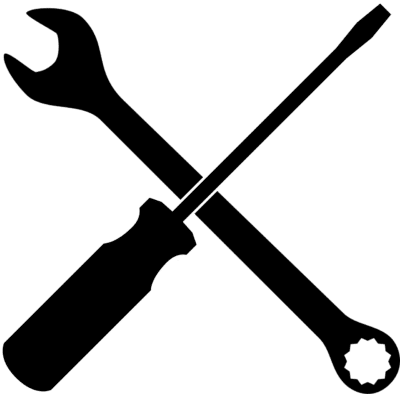“Commercial insurance endorsements” is a phrase that insurance companies and brokers frequently use, but few business owners understand what an endorsement is. An insurance endorsement (or rider) amends a commercial insurance policy by adding, removing, or excluding specific categories of coverage. It enables you to tailor your insurance to your specific demands or budget without having to shop for a new or additional policy. For example, if an insurance policy you’re contemplating does not protect a critical risk or person you need it to, you might ask your agent to add an endorsement that does. On the other hand, if a policy provides coverage that you do not want, you can seek an endorsement to have it removed, which could save you money.
How Do Endorsements Work?
Each insurance policy begins with a standardized coverage form, which provides a baseline of coverage and is used in practically every industry and on every policy large and small. The problem with lumping every company together is that not all businesses in the same industry need or want the same levels of protection. Lumping everyone together can cause excessive coverage or lacking coverage across the board. Some businesses may be considerably too dangerous to insure on a conventional basis and a standard policy won’t be able to cover them properly.
This is why we have endorsements, to tailor commercial insurance policies to the specific needs of both the consumer and the insurance company. Endorsements are one of the fundamental building components of insurance. Typical policies include 3 components:
- Insuring agreement – This is a list of the risks the policy will protect you from
- Exclusions – Lists all of the losses your policy won’t cover
- Conditions – These are the terms you agree to meet in order to be covered.
How do endorsements fit into this structure? They can either change the insuredinsuring agreement, removing unnecessary coverage, or negate one or more exclusions, thus restoring coverage to the policy. As a result, your policy will be more closely aligned with your company’s risk exposures and insurance budget.
Adding Coverage
An endorsement can be utilized to extend the policy’s coverage beyond what is standard. Additional coverage may be added in terms of who is covered, what coverage is offered, or how much coverage is provided.
Removing Coverage
Endorsements are not just used to add coverage to a policy; they can also be used to cancel or limit coverage. Coverage can be altered in a number of ways if the agreement between the insured and the insurer changes. An endorsement can be used to remove all coverage or just add an exclusion. Another way to limit coverage is to impose a separate lower insurance limit to a specific type of claim. Coverage can be canceled or limited in any of these instances by using an endorsement that describes the scope of the coverage change.
Administrative Changes
Any changes to the policyholder’s or any other relevant party’s information must be documented in an administrative edit endorsement. Changes in mailing addresses, for example, or changes in name or title, must be reflected in the policy.
Clarifications
Finally, some endorsements involve tweaks that do not affect the policy’s essence. If a clause is misunderstood or misread, an endorsement may be required to clarify and make the language more clear.
Types of Endorsements
An endorsement might be as simple as clarifying a certain concept or coverage, and it can add coverage that is frequently omitted from ordinary policies. Although some endorsements add coverage that was not included in the original liability coverage form, others can remove specific coverage. To start there are 4 categories of endorsements:
 Standard Endorsements
Standard Endorsements
The same way that many insurance plans are governed by certain rules and defined terminology, so are endorsements. Organizations such as the American Association of Insurance Services (AAIS) and the Insurance Securities Office (ISO) create templates that insurers can utilize. These organizations’ templates are available to insurers who subscribe to them. These are among the safest and most secure endorsements.
Non-Standard Endorsements
Non-standard endorsements are ones created by the insurer for a specific type of policy holder. This may be done if the specific endorsement is not included in conventional endorsements. Many insurers will write their own endorsement statements utilizing standard endorsements as a basis.
Voluntary Endorsements
An endorsement to a policy can be added freely by the insured or insurer. Because of the nature of the business, voluntary endorsements may be included. If a company sells alcohol, for example, the insured may request that a liquor liability endorsement be added to a general liability policy. An example of an endorsement given by the insurer would be the exclusion of asbestos claims from liability coverage. Policies covering specific sorts of operations may include specific types of endorsements, such as an endorsement for a business’s general liability policy stating that the policy must have a professional liability exclusion.
Mandatory Endorsements
Certain endorsements are required. The Insurance Services Office (ISO), for example, requires endorsements on policies that provide a specific type of coverage. State-mandated endorsements may include additional criteria to safeguard individuals, such as limiting the insurer’s authority to cancel a policy. ISO requires various endorsements, such as requiring all general liability policies to include specific exclusions. For example, an insurance company that operates in numerous states may use one base policy plus a series of endorsements suited to the regulations of each state. A policyholder who moves between two states may need an insurance endorsement to a policy that is carried across state borders.
Common Insurance Endorsements
A business owner may require a variety of endorsements, the most typical of which are:
Additional Insured
Businesses utilize additional insured (AI) endorsements to add a person or entity as an insured to a policy. The person or company added is typically a general contractor working for the named insured. It is frequently requested on a wide range of insurance policies, including professional liability and commercial motor insurance. However, commercial general liability (CGI) is the most popular. This endorsement is requested by the named insured to ensure that the proper organization or individual is held financially liable in the event of a risk occurrence.
Prior Acts
This endorsement covers claims made on incidents that occurred prior to the signing of the liability insurance policy. Certain claims take time, and the insurance company will usually include a retroactive date that is prior to the beginning date of coverage. As an example, consider a doctor who purchases a new malpractice policy with a prior actions endorsement. If a claim is made for an event that occurred before the new policy went into effect, but after the stated retroactive date, it will be covered by the current policy. If an insurance company does not include a retroactive date. These types of endorsements are considered full prior actions coverage. Any claims made during the current policy’s coverage period would be covered.
Extended Reporting Period
A claims-made professional liability coverage can be supplemented with an extended reporting period (ERP). You can file a claim even after the policy has expired. ERPs are classified into two types: basic extended reporting period and supplemental extended reporting period. If an insurance is canceled or not renewed, a basic ERP is frequently offered for a free 30-day or 60-day extension. Supplemental ERPs are acquired from the provider of your insurance and typically extend the coverage for one to five years. Some insurance companies also give indefinite ERPs.
Equipment Breakdown
This type of commercial property insurance endorsement will reimburse you for loss or damage, including equipment repair or replacement as well as time and work, income loss, lost inventory, and other required expenses. The following types of equipment are commonly covered:

- Mechanical
- Electrical
- Computers
- Air conditioning or refrigeration systems
- Boilers and pressure equipment
Employees as Insureds
If you own a company where your employees drive to help your company, you may be exposed to a considerable level of risk. For instance, suppose you have a post office box and your receptionist goes to retrieve the mail. Unfortunately, some commercial auto insurance policies will not cover your liabilities during this time. If your employee drives for your company, you may be held liable for their activities. If an employee is injured while working for you, you may not be fully protected. Your company auto policy will only cover the vehicle’s use.
Meanwhile, your employee’s coverage will protect them if they use the automobile for personal reasons. When the insurance adjusters begin their investigation, your employee is likely to be caught off guard. You’ll need a staff as insured endorsement to safeguard your staff and yourself. This endorsement will cover your staff even if they own the vehicle. This eliminates the possible gap and can save you and your employees a lot of sorrow and financial hardship.
 Fellow Employee Coverage
Fellow Employee Coverage
If one of your employees injures another employee while working for your organization, the person who is at fault will require protection. If your employee causes a car accident that injures another employee, they may have no recourse. This will happen eventually, and when it does, the employee who is found to be at fault may face complete liability. This occurs because most business auto policies do not cover employee injuries. Employee injuries, according to policy issuers, should be covered by other insurance, including workers’ compensation and Employer’s Liability insurance. Employees who are driving a vehicle when they harm another employee may not be protected by their own insurance.
Accounts Receivable
Accounts receivable endorsement can be added to commercial property coverage to protect your small business from financial losses if you are unable to collect money from clients or customers, or if your accounts receivable records are damaged or destroyed as a result of a covered event.
How Much Do Endorsements Cost?
The cost is undoubtedly at the forefront of your attention, as it is with most company products. Here’s an overview on premiums. The cost of additional insured (AI) can range from $100 to $500, depending on the type of AI endorsement. With blanket AI, the insured can add as many AIs as they require, which is frequently close to $500. Individual AIs are normally priced at $100. Limit increases are completely determined by the increasing volume, type of coverage, and level of exposure. Although we’d love to provide more concrete figures, every company is unique. As a result, providing a range without knowing specifics is impossible.
Working With EZ
Your business insurance can protect the company financially and otherwise in the event of a risk. From general liability and commercial property insurance to professional liability coverage, the insurance you choose and the endorsements you add can provide peace of mind for you and your employees. When used correctly, endorsements can be used to tailor your policy to your specific needs. An insurance professional can assist you. Our agents at EZ work with the top insurance providers in the country to locate the best insurance for your company and its employees. In fact, by working with your budget to get you the greatest coverage, we can save you hundreds of dollars per year. If you have any questions about commercial insurance, please contact us at 877-670-3538 or enter your zip code in the bar below to get an online quote now.
